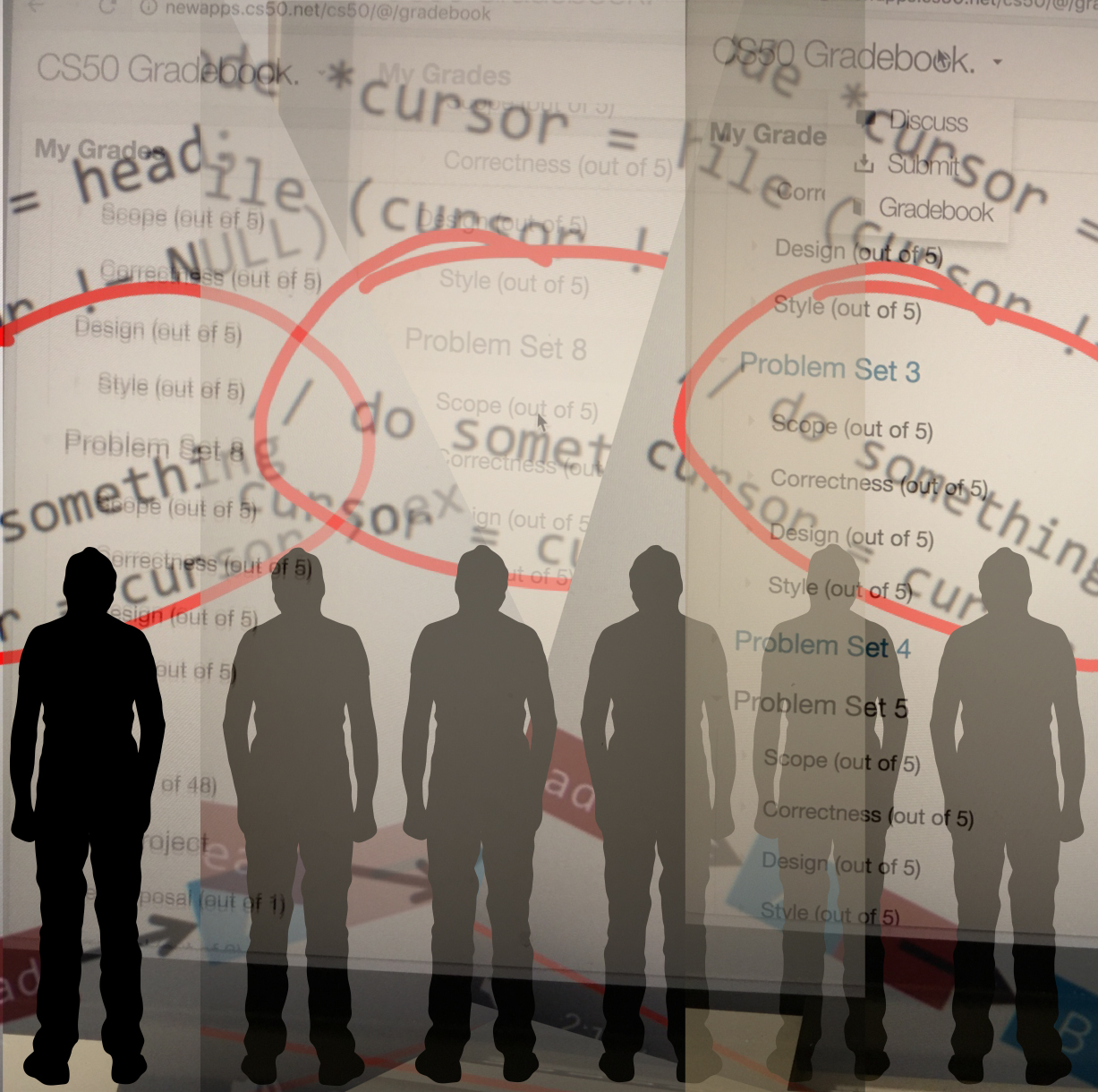
News
HMS Is Facing a Deficit. Under Trump, Some Fear It May Get Worse.

News
Cambridge Police Respond to Three Armed Robberies Over Holiday Weekend

News
What’s Next for Harvard’s Legacy of Slavery Initiative?

News
MassDOT Adds Unpopular Train Layover to Allston I-90 Project in Sudden Reversal

News
Denied Winter Campus Housing, International Students Scramble to Find Alternative Options
CS50, Be Reasonable
After a relatively quiet year, Harvard’s most famous—or perhaps notorious—course has made headlines once again. The Crimson reported recently that Computer Science 50: “Introduction to Computer Science I”, Harvard’s introductory computer science course, submitted nearly ten percent of its students to the Honor Council for suspected academic dishonesty last fall, a wave of over 60 cases that has taken months to assess.
While we wholeheartedly condemn any proven acts of cheating by individual students, many students felt that the course’s honor policy was too vague, leading to unintentional potential violations.
The course has an open-ended and amorphous honor policy, under the banner of being “reasonable.” We understand that the collaborative nature of computer science requires students to work together, and may thus make promulgating strict rules about plagiarism more difficult.
In our view, however, this only underlines the importance of head instructor David J. Malan ’99 and the course staff finding a solution that reconciles the need for collaboration and the gravity of academic integrity. Though the course staff have undoubtedly given this matter some thought, we urge them to more explicitly delineate what is allowed and what is unacceptable. That many of the accused students allege that they were unaware of having done anything wrong may suggest that the honor policy was simply not reasonable enough.
This was exacerbated by Malan’s choice to review potential academic integrity issues primarily at the close of the year, preventing students from being able to correct their understanding of what was appropriate mid-semester. Drawing these distinctions is especially difficult for freshmen, who do not have experience with Harvard’s norms of appropriate collaboration and make up many of the students enrolled in CS50.
We are also disappointed that Malan would choose to stretch the limits of the Honor Council’s abilities. With only 30 members, it is ill equipped to simultaneously investigate the numerous cases of academic dishonesty that he presented after the close of the course. It suggests a careless disregard for both the Council and the accused students, as many cases were only resolved recently, more than four months after the course ended.
That said, we remind students who find themselves in situations that seem conducive to cheating that grades and academics are not more important than integrity. Whatever the short-term benefits of academic dishonestly, the penalties are far greater. More importantly, it is wrong to do.
This staff editorial solely represents the majority view of The Crimson Editorial Board. It is the product of discussions at regular Editorial Board meetings. In order to ensure the impartiality of our journalism, Crimson editors who choose to opine and vote at these meetings are not involved in the reporting of articles on similar topics.
Want to keep up with breaking news? Subscribe to our email newsletter.

